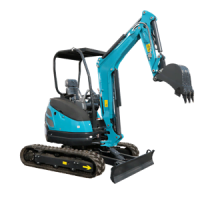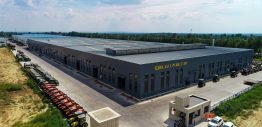Introduction
In the age of heightened environmental consciousness, the impact of various industries on the planet has come under scrutiny. Agriculture, a vital sector that sustains global food production, is no exception. Farm tractors, essential tools in modern farming, have traditionally relied on fossil fuels, raising concerns about their contribution to greenhouse gas emissions and environmental degradation. In this comprehensive 8000-word article, we delve deep into the environmental implications of conventional farm tractors and explore whether electric models can serve as the sustainable solution that the world urgently needs.
The Farming Revolution: A Historical Perspective
 The Era of Fossil Fuel-Powered Tractors
The Era of Fossil Fuel-Powered Tractors
Before we explore the environmental aspects, it’s crucial to understand the historical context of tractors and their evolution into the powerful machines they are today.
The Environmental Impact of Traditional Tractors
Resource Depletion
Conventional farm tractors have been a staple of agriculture for decades, but their environmental footprint has raised alarms. We’ll delve into the specifics of how these machines affect our planet.
The Promise of Electric Farm Tractors
Challenges and Limitations
Electric farm tractors have emerged as a potential game-changer in sustainable agriculture. Discover how these machines operate, their benefits, and the obstacles they face in widespread adoption.
Sustainable Agriculture: A Holistic Approach
Eco-Friendly Practices
Reducing the environmental impact of tractors is just one part of the equation. Sustainable farming practices encompass a broader spectrum of approaches that we’ll explore in this section.
Realizing the Potential: Case Studies
Economic Viability
We’ll examine real-world examples where electric tractors have made a positive impact, along with insights from farmers who have embraced this technology.
The Road Ahead: Policy and Industry Initiatives
 Research and Development
Research and Development
The transition to electric farm tractors requires collaboration between governments, industries, and researchers. Discover the initiatives that are driving this change.





 The Era of Fossil Fuel-Powered Tractors
The Era of Fossil Fuel-Powered Tractors Research and Development
Research and Development-1.png)